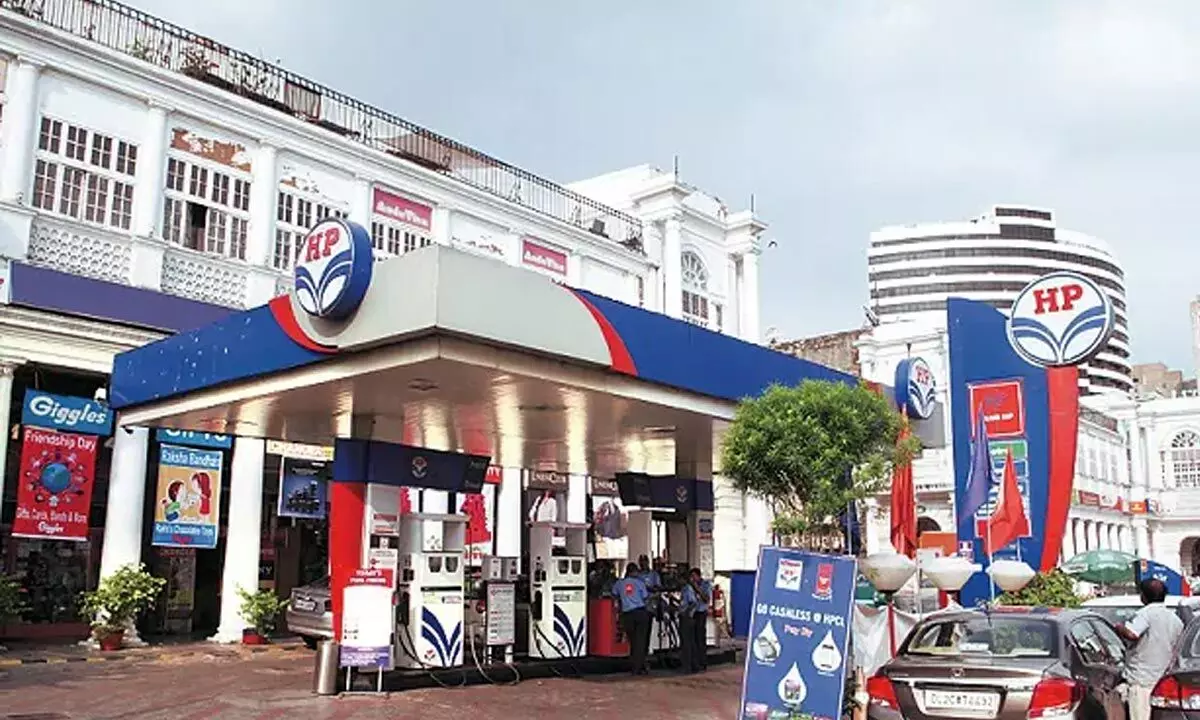Govt to get significant stake in HPCL post preference issue
Wll infuse equity in fuel retailers HPCL, IOC & BPCL that lost money on selling petrol and diesel at discounted rates last year
image for illustrative purpose

New Delhi Five years after it exited the company, the government is set to get a significant stake in Hindustan Petroleum Corporation Ltd (HPCL) as it looks to infuse equity in fuel retailers that lost money on selling petrol and diesel at discounted rates last year, officials said.
The government had in the annual Budget for 2023-24 announced Rs30,000 crore of capital support to State-run fuel retailers -- Indian Oil Corporation (IOC), HPCL and Bharat Petroleum Corporation Ltd (BPCL) -- to support their energy transition and net-zero initiatives. In June, the government asked IOC and BPCL to launch rights issues (to get the capital), and advised HPCL to make a preferential share allotment to the government. Board of IOC earlier this month approved raising up to Rs22,000 crore by inviting existing shareholders to purchase additional new shares in the company (this type of issue gives existing shareholders securities called rights). BPCL board too has approved raising up to Rs18,000 crore through a rights issue, but HPCL board is yet to approve the preferential issue.
Officials involved in the matter said HPCL board is awaiting guidance from the government before taking the preferential issue (which is nothing, but the procedure of bulk allotment of fresh shares to a specific group of investors). Considering all existing shareholders of IOC exercising the option under the rights issue, the government would for its 51.5 per cent stake in the company chip in Rs11,330 crore. Similarly, in case of BPCL, the government may end up paying about Rs9,530 crore for its 52.98 per cent stake in the company, they said.
While the final numbers would depend on how many shareholders participate in the rights issue, fully-subscribed rights issue of IOC and BPCL would mean the government is left with anything between Rs9,000 crore to Rs10,000 crore out of the Rs30,000 crore approved in the budget, for preferential issue of HPCL. At HPCL’s current market capitalisation of Rs39,650 crore, this would translate into a significant stake, they said, adding the exact equity holding would depend on the price at which shares are issued to the government.
The government had in January 2018 sold its entire 51.11 per cent stake in oil refining and fuel marketing company HPCL to explorer Oil and Natural Gas Corporation (ONGC) for Rs 36,915 crore. While that transaction was part of the government's strategic divestment programme, the government continues to retain indirect control over HPCL through state-owned ONGC. The government continues to appoint all directors on HPCL board and the company continues to work under administrative control of the oil ministry. Because of this control, all three retailers -- IOC, BPCL and HPCL -- in unison decided not to pass on Russia's Ukraine-war induced spurt in international oil prices to consumers.
This led to the three posting a combined net loss of Rs21,201.18 crore during April-September 2022, despite accounting for Rs22,000 crore announced but not paid LPG subsidy for the previous two years.
The freeze on fuel prices has continued ever since despite oil prices declining, helping the retailer make up for some of the losses. Officials said while the capital support on the face of it to support energy transition projects of the three firms, it is indirectly making up for the losses they incurred on selling fuel below cost. The fact that the support is only for the three firms and not net-zero carbon emission projects of other state-owned firms like ONGC and GAIL means it is for a specific objective, they said. Fitch Ratings had previously stated that the planned aggregate equity infusion may be higher than the budgetary allocation due to minority investors' participation in the rights issues. "All three oil marketing companies (OMCs) last year announced targets to reduce scope 1 and 2 emissions (those directly emitted by the firm itself and those indirectly stemming from its energy or cooling purchases) to zero. BPCL and HPCL seek to do so by 2040, and IOC by 2046.

